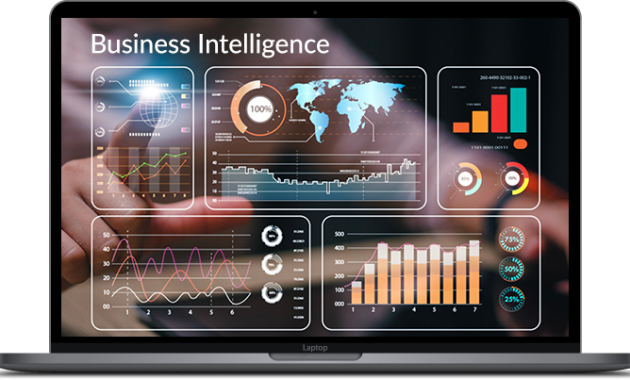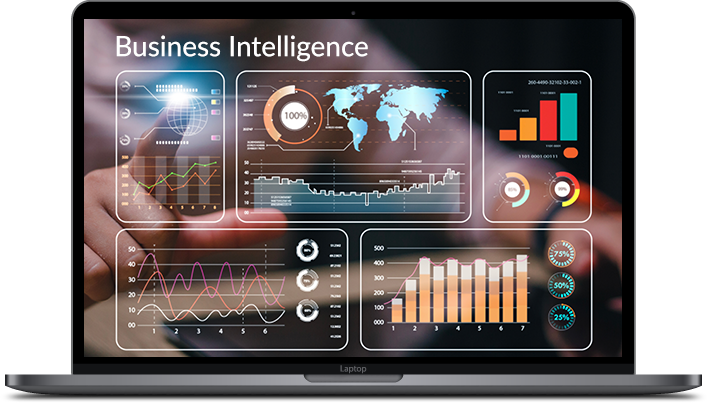
Expert Tips on Business Intelligence Software for Growth: A Comprehensive Guide
In today’s data-driven world, businesses are constantly seeking ways to gain a competitive edge. One of the most powerful tools available is Business Intelligence (BI) software. This software empowers organizations to collect, analyze, and interpret data. This leads to informed decision-making and strategic growth. This guide provides expert tips on Business Intelligence software for growth, helping you unlock its full potential.
The sheer volume of data generated daily can be overwhelming. BI software helps to make sense of this data. It transforms raw data into actionable insights. This allows businesses to identify trends, patterns, and opportunities. This leads to better business outcomes. Whether you’re a startup or an established enterprise, understanding and implementing the right BI strategy is crucial. These expert tips on Business Intelligence software for growth will help you.
Understanding the Core of Business Intelligence
At its core, BI involves collecting, processing, and analyzing data. This data comes from various sources. These include sales figures, marketing campaigns, and customer interactions. The goal is to provide a comprehensive view of the business. This allows for informed decision-making. BI software offers a range of functionalities. These include data warehousing, data mining, and reporting.
Data warehousing involves storing data in a centralized repository. This allows for easier access and analysis. Data mining uses statistical techniques to uncover hidden patterns. Reporting tools present data in a clear and understandable format. These features enable businesses to gain valuable insights. They can then use these insights to improve performance and drive growth.
Choosing the Right Business Intelligence Software
Selecting the right BI software is a critical first step. The market offers a wide range of solutions. These solutions cater to different needs and budgets. Consider factors like data sources, user experience, and scalability. Also, consider the features and reporting capabilities. Here are some key considerations when choosing BI software.
- Define Your Needs: Before exploring options, clearly define your business goals. Identify the key performance indicators (KPIs) you want to track. Understand the specific data you need to analyze.
- Assess Data Sources: Determine where your data resides. Ensure the software integrates seamlessly with your existing systems. This includes databases, CRM, and marketing platforms.
- Evaluate User Experience: The software should be intuitive and easy to use. Look for features like drag-and-drop dashboards and interactive visualizations.
- Consider Scalability: Choose a solution that can grow with your business. This is important as your data volume increases. The software should be able to handle it.
- Check Reporting Capabilities: Ensure the software offers robust reporting features. These features should include customizable dashboards and automated reports.
Implementing a Successful Business Intelligence Strategy
Simply implementing BI software is not enough. A well-defined strategy is essential for maximizing its benefits. This strategy involves several key steps. These steps ensure effective data management and analysis. They also ensure that insights translate into actionable outcomes. These expert tips on Business Intelligence software for growth will help you implement a successful strategy.
- Data Integration: Integrate data from all relevant sources. This creates a unified view of your business. Ensure data quality and consistency throughout the process.
- Data Governance: Establish clear data governance policies. This ensures data accuracy and security. Define roles and responsibilities for data management.
- Training and Adoption: Provide adequate training to your team. This ensures they can effectively use the software. Encourage user adoption through clear communication and support.
- Continuous Monitoring: Regularly monitor the performance of your BI system. This helps to identify areas for improvement. Make adjustments as needed to optimize results.
- Feedback and Iteration: Gather feedback from users. Use it to refine your BI strategy and reporting. Continuously iterate to improve the value you derive from your data.
Leveraging Business Intelligence for Strategic Growth
BI software is a powerful tool for driving strategic growth. It provides insights that can inform various business decisions. This includes marketing, sales, and operations. Here’s how you can leverage BI for strategic growth.
- Improved Decision-Making: BI provides data-driven insights. This leads to more informed decisions. This reduces reliance on guesswork and intuition.
- Enhanced Customer Understanding: Analyze customer data to understand their behavior. This leads to better customer segmentation and personalized marketing.
- Optimized Operations: Identify inefficiencies in your operations. Optimize processes and reduce costs. This improves overall efficiency.
- Increased Sales and Revenue: Analyze sales data to identify trends. This helps to optimize sales strategies. This leads to higher revenue.
- Competitive Advantage: Use BI to monitor market trends. Identify opportunities and gain a competitive advantage. This helps you stay ahead of the competition.
Advanced Tips and Best Practices
To truly master BI software, consider these advanced tips. They will help you to maximize its impact on your business. They will also help you to achieve your growth objectives. These expert tips on Business Intelligence software for growth will help you to move forward.
- Data Visualization: Use effective data visualization techniques. This makes complex data easier to understand. Use charts, graphs, and dashboards to present insights clearly.
- Predictive Analytics: Explore predictive analytics capabilities. This allows you to forecast future trends. Use this to make proactive decisions.
- Mobile BI: Implement mobile BI solutions. This allows users to access data on the go. This increases accessibility and responsiveness.
- Security and Compliance: Prioritize data security and compliance. Ensure your BI system meets industry standards. Protect sensitive data from unauthorized access.
- Stay Updated: Keep abreast of the latest BI trends and technologies. This enables you to continuously improve your strategy. Explore new features and capabilities.
Real-World Examples of Business Intelligence in Action
Many businesses have successfully used BI software. They have driven significant growth. These examples demonstrate the power of BI. They also show how it can be applied in different industries. These expert tips on Business Intelligence software for growth are proven.
- Retail: Retailers use BI to analyze sales data. They then optimize inventory and personalize customer experiences. This leads to increased sales and customer loyalty.
- Healthcare: Healthcare providers use BI to improve patient care. They can also improve operational efficiency. This leads to better patient outcomes and reduced costs.
- Finance: Financial institutions use BI to detect fraud. They also manage risk and improve customer service. This leads to enhanced security and customer satisfaction.
- Manufacturing: Manufacturers use BI to optimize production processes. They then improve supply chain management. This leads to reduced costs and increased efficiency.
- Marketing: Marketers use BI to analyze campaign performance. They can then optimize marketing spend. This leads to higher ROI and improved customer engagement.
The Future of Business Intelligence
The future of BI is bright. New technologies are constantly emerging. These technologies will further enhance its capabilities. These include artificial intelligence (AI) and machine learning (ML). These will play a crucial role in shaping the future of BI.
AI and ML can automate data analysis. They can also provide more advanced insights. This makes BI even more powerful. The trend toward cloud-based BI solutions will continue. This offers greater flexibility and scalability. Data democratization will empower more users. These users can access and analyze data. The future of BI is about making data more accessible. It is also about making it more actionable. It will help businesses drive growth and innovation.
Conclusion: Embracing Business Intelligence for Sustainable Growth
Business Intelligence software is no longer a luxury. It is a necessity for businesses that want to thrive in today’s market. By following these expert tips on Business Intelligence software for growth, you can unlock its full potential. You can also use it to drive strategic growth. Implement the right software. Develop a sound strategy. Embrace continuous improvement. You can transform your data into a valuable asset. You can then use it to achieve sustainable success.
The journey to data-driven decision-making begins with understanding. It also begins with selecting the right tools. It continues with a well-defined strategy. It ends with continuous improvement. Embrace the power of Business Intelligence. Drive your business toward a future of growth and innovation.
[See also: How to Choose the Right BI Software, Data Visualization Best Practices, The Role of AI in Business Intelligence]

